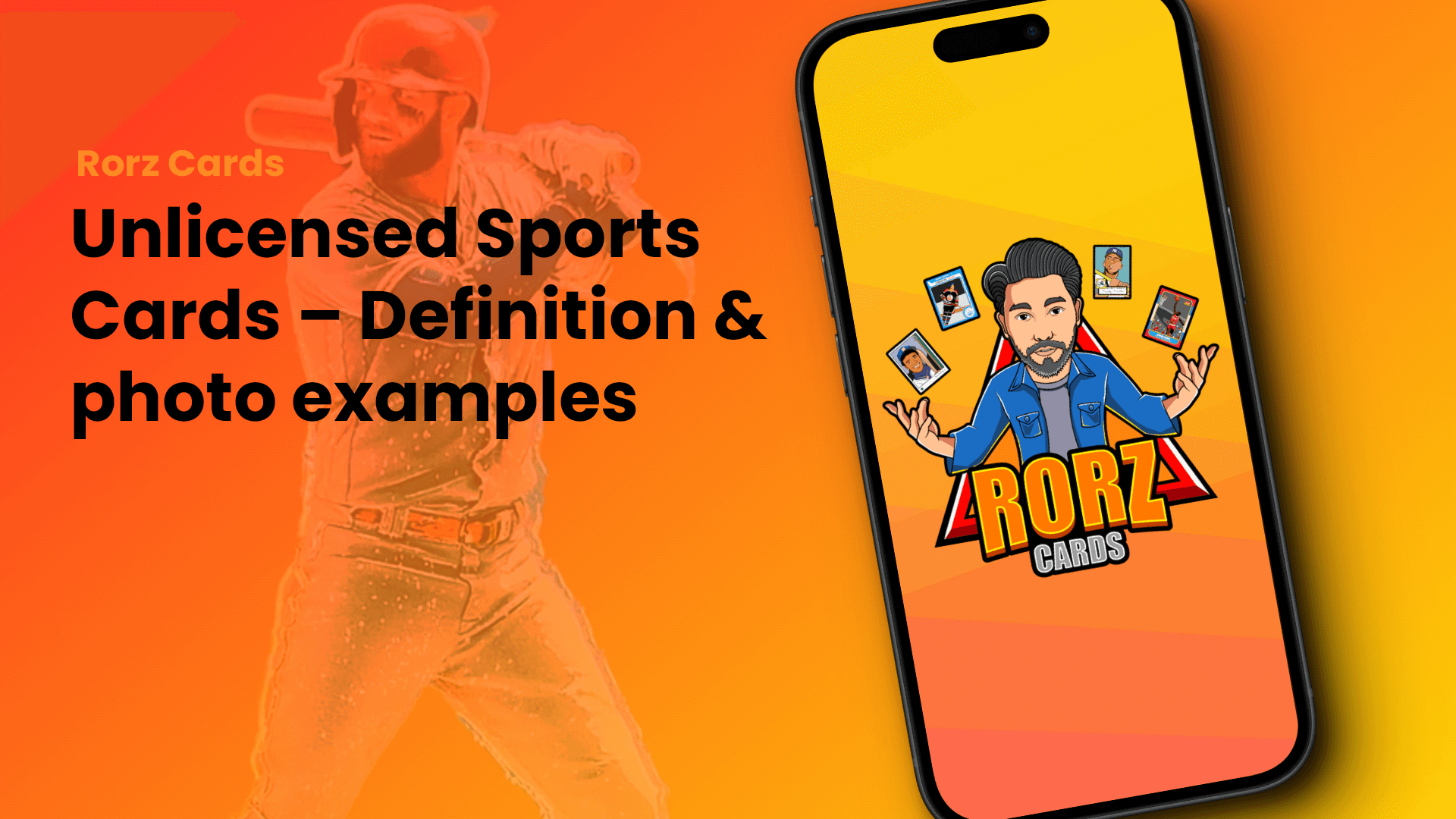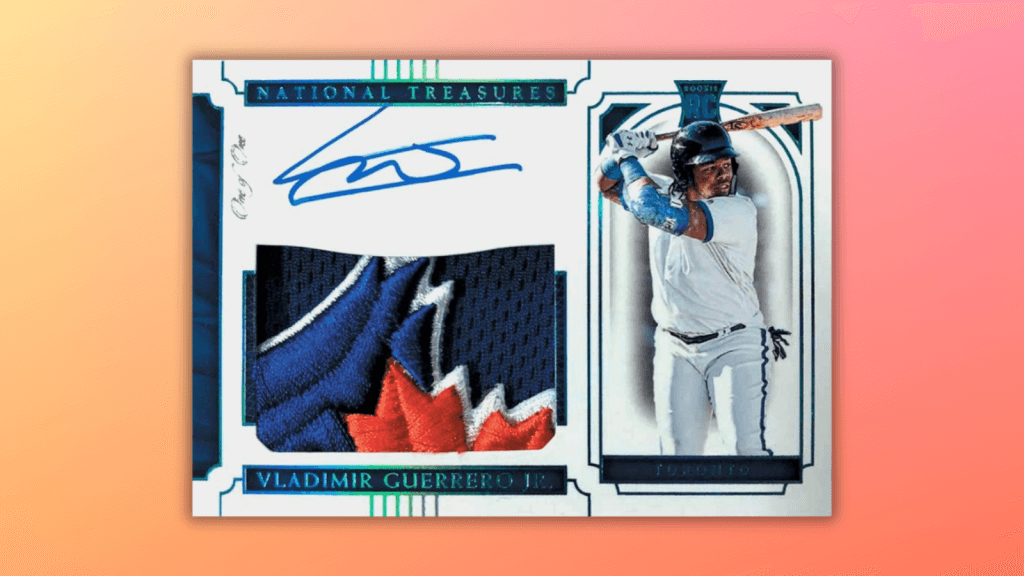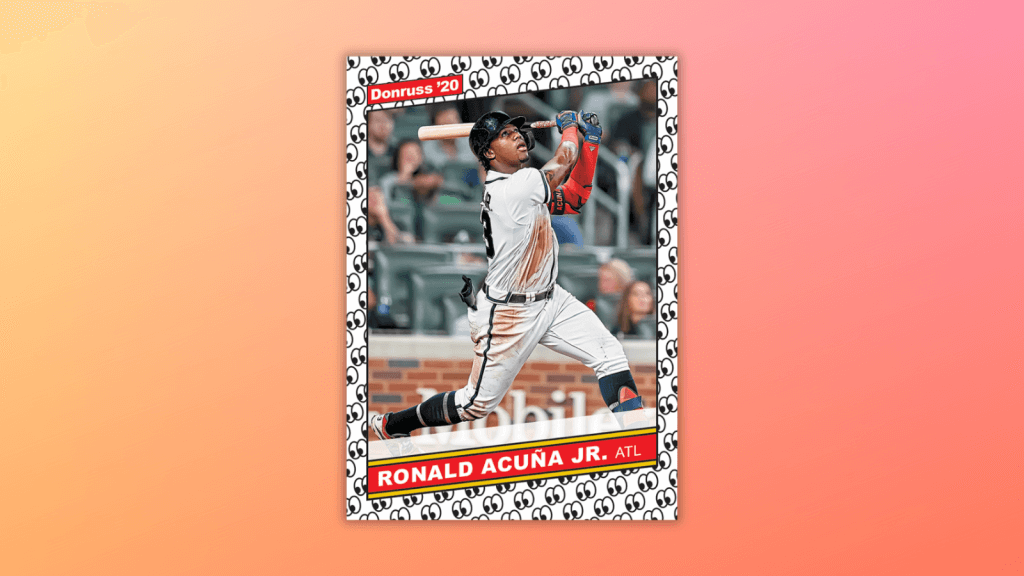
What are unlicensed sports cards?
Unlicensed sports cards are sports trading cards that feature athletes, teams, or sports imagery but do not have official permission or licensing from the leagues, teams, or players’ associations they represent. Unlike licensed cards, which are produced under agreement with organizations like the NBA (National Basketball Association), NFL (National Football League), MLB (Major League Baseball), NHL (National Hockey League), or their respective players’ associations, unlicensed cards might not use official team logos, uniforms, or explicitly reference the league.

The distinction between licensed and unlicensed cards is significant for collectors and fans. Licensed cards can use all the official emblems, logos, and uniform details, making them more authentic and often more desirable to collectors. They also usually include player endorsements and are produced by companies that have paid for the rights to make these cards, such as Topps, Panini, and Upper Deck.
Unlicensed cards, on the other hand, must navigate around these restrictions. They might feature players in generic uniforms, omit team names and logos, or focus on imagery that doesn’t directly infringe on copyrights or trademarks. Despite these limitations, some unlicensed cards can be valuable or sought after due to rarity, the popularity of the athlete, or unique design aspects. However, they generally hold less appeal than licensed counterparts due to the lack of official branding and recognition.
The most notable example: Panini baseball cards
Panini America, despite being one of the leading sports trading card companies, produces baseball cards that are unlicensed by Major League Baseball (MLB). This means that while Panini can produce cards featuring MLB players, they do so without the official MLB endorsement, which includes the use of team logos, team names, and other trademarked elements associated with Major League Baseball.

To navigate the lack of an MLB license, Panini America employs various creative strategies in designing their baseball cards:
- Generic Uniforms and Imagery: Panini’s baseball cards depict players in uniforms that lack any MLB team logos or specific team identifiers. This might mean airbrushing out logos from uniforms or using photographs where team insignia are not visible. The focus is often on the player in action or portrait shots where such details are naturally obscured.
- Artistic Designs and Themes: Panini compensates for the absence of MLB branding by investing heavily in the artistic and aesthetic aspects of their cards. They utilize dynamic designs, eye-catching graphics, and innovative themes to make their cards visually appealing. These designs can include abstract backgrounds, creative use of player images, and special edition themes that capture the spirit of the game in unique ways.
- Focus on Player Popularity and Performance: Without the ability to leverage team loyalty through logos and branding, Panini’s cards often highlight player achievements, popularity, and statistics. They produce cards for a wide range of players, from current stars to retired legends, ensuring that fans of the sport can find cards of their favorite players.
- Special Features and Collectibles: To enhance collectability and value, Panini incorporates special features into their baseball card products. These can include autographs, memorabilia cards (which may contain pieces of player-worn jerseys or equipment), and limited edition runs. These elements make certain cards highly sought after in the collecting community.
- Licensing Through Players’ Associations: While Panini America does not have MLB licensing, they often have agreements with players’ associations. This allows them to use the names and likenesses of the players themselves, ensuring that they can still produce cards featuring the athletes, albeit without the official team affiliations.
Despite the lack of MLB licensing, Panini America’s baseball cards have carved out a significant niche in the sports card market. Their innovative design, focus on player-driven content, and inclusion of collectible features make their products appealing to many collectors. The company’s ability to adapt and create compelling products without MLB licensing showcases the diversity and creativity within the sports trading card industry.
What about Leaf Trading Cards?
Leaf Trading Cards, another key player in the sports trading card industry, also produces unlicensed cards, particularly in realms where they do not have direct agreements with major sports leagues or associations. Similar to Panini America’s approach to baseball cards, Leaf’s offerings often feature athletes from various sports, including baseball, football, and hockey, without the official logos, team names, or league endorsements. Leaf compensates for the absence of these official elements by focusing on innovative design, player selection, and the inclusion of unique features that appeal to collectors.

Leaf Trading Cards distinguishes itself with a strong emphasis on prospects, rookies, and young stars across sports, often capturing the attention of collectors who are looking to invest in the potential future success of emerging athletes. Their products are known for high-quality autographs, limited edition prints, and memorabilia cards that include player-worn materials. By leveraging creative design elements and focusing on the athletes themselves, Leaf is able to create compelling collections that resonate with collectors despite the lack of official league affiliations. The company’s strategy includes producing cards that celebrate the athletes’ achievements and potential, making them a popular choice among collectors who are more interested in the players’ careers and less concerned with team allegiance.
Are unlicensed sports cards worth collecting?
In the vast and varied world of sports card collecting, unlicensed trading cards often occupy a unique niche that may not initially capture the attention of every collector. Yet, these cards, lacking official endorsements from major leagues like the MLB, NFL, or NBA, hold a special allure and potential value that shouldn’t be overlooked. Here’s why venturing into the realm of unlicensed sports cards might just be your next great collecting move.
A Spotlight on Emerging Talent: One of the most compelling aspects of unlicensed sports cards, produced by companies such as Panini America and Leaf Trading Cards, is their focus on rookies, prospects, and young stars. For collectors fascinated by the thrill of identifying and investing in the next big name in sports, unlicensed cards provide a treasure trove of opportunities. These cards celebrate the potential and achievements of athletes before they hit the mainstream, offering a unique angle for collectors with an eye for talent.
Artistic Freedom and Innovation: Freed from the constraints of official logos and team colors, the designers behind unlicensed cards pour their creativity into every piece. The result is a collection of cards that stand out for their artistic designs, innovative use of materials, and eye-catching aesthetics. For those who appreciate the art of card making as much as the sport itself, unlicensed cards offer a refreshing departure from the standard imagery of licensed cards.
Autographs, Memorabilia, and More: Unlicensed doesn’t mean uninteresting. In fact, many unlicensed cards are packed with value-adding features like autographs and memorabilia. These elements not only enrich the card’s appeal but also create a direct connection to the players, making them highly sought after by fans and collectors alike.
An Accessible Entry Point: Given their unlicensed nature, these cards can sometimes be more affordable than their licensed counterparts. This accessibility makes them an attractive option for newcomers to the hobby or for seasoned collectors looking to expand their collections without breaking the bank.
The Rarity Factor: The unique position of unlicensed cards in the market can lead to increased rarity and, by extension, potential value over time. Certain unlicensed series or cards, especially those featuring popular players or limited edition designs, can become highly coveted items among collectors.
A Personalized Collecting Experience: Ultimately, collecting unlicensed sports trading cards is about charting your own course in the hobby. Without the draw of team allegiances, collectors can focus on the athletes’ stories, the beauty of the card designs, and the joy of discovering hidden gems.
Conclusion
While unlicensed sports trading cards may march to the beat of a different drum, their value in the collecting world is undeniable. By offering a unique blend of artistic innovation, focus on emerging talent, and the thrill of the hunt for rare finds, these cards present a compelling option for collectors of all stripes. Whether you’re drawn to the potential investment opportunities or simply appreciate the distinctive approach to card design, unlicensed cards are worth a closer look.
